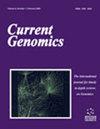肿瘤组织中PSMD14的异常表达是肝细胞癌根治性切除后潜在的预后生物标志物
IF 1.4
4区 生物学
Q4 BIOCHEMISTRY & MOLECULAR BIOLOGY
引用次数: 0
摘要
肝细胞癌(HCC)死亡率高,根治性切除是主要治疗方法。然而,HCC患者在治愈性切除后5年内复发的可能性很大。方法:因此,识别生物标志物预测复发是至关重要的。在我们的研究中,我们分析了来自CCLE、GEO和TCGA的数据,确定了8个与HCC相关的癌基因。随后,在5例肿瘤组织及邻近非肿瘤组织中检测8个基因的表达。然后选择ATP6AP1、PSMD14和HSP90AB1在63例肿瘤组织及邻近非肿瘤组织中的表达进行验证。结果显示,ATP6AP1、PSMD14、HSP90AB1在肿瘤组织中普遍高表达。对63例临床病例进行5年随访,结合Kaplan-Meier Plotter无复发生存期(RFS)分析,发现PSMD14表达与HCC患者复发之间存在显著相关性。随后,我们分析了PSMD14基因突变,发现PSMD14基因突变可导致HCC患者的无病生存时间缩短。结果:富集分析结果表明,PSMD14相关差异表达基因主要富集于信号释放通路。结论:综上所述,我们的研究表明PSMD14可能与HCC患者的复发有关,PSMD14在肿瘤组织中的表达可能是HCC患者肿瘤切除后潜在的预后生物标志物。本文章由计算机程序翻译,如有差异,请以英文原文为准。
Aberrant Expressions of PSMD14 in Tumor Tissue are the Potential Prognostic Biomarkers for Hepatocellular Carcinoma after Curative Resection
Introduction: Hepatocellular carcinoma (HCC) has a high mortality rate, with curative resection being the primary treatment. However, HCC patients have a large possibility of recurrence within 5 years after curative resection. Method: Thus, identifying biomarkers to predict recurrence is crucial. In our study, we analyzed data from CCLE, GEO, and TCGA, identifying eight oncogenes associated with HCC. Subsequently, the expression of 8 genes was tested in 5 cases of tumor tissues and the adjacent non-tumor tissues. Then ATP6AP1, PSMD14 and HSP90AB1 were selected to verify the expression in 63 cases of tumor tissues and the adjacent non-tumor tissues. The results showed that ATP6AP1, PSMD14, HSP90AB1 were generally highly expressed in tumor tissues. A five-year follow-up of the 63 clinical cases, combined with Kaplan-Meier Plotter's relapse-free survival (RFS) analysis, found a significant correlation between PSMD14 expression and recurrence in HCC patients. Subsequently, we analyzed the PSMD14 mutations and found that the PSMD14 gene mutations can lead to a shorter disease-free survival time for HCC patients. Results: The results of enrichment analysis indicated that the differentially expressed genes related to PSMD14 are mainly enriched in the signal release pathway. Conclusion: In conclusion, our research showed that PSMD14 might be related to recurrence in HCC patients, and the expression of PSMD14 in tumor tissue might be a potential prognostic biomarker after tumor resection in HCC patients.
求助全文
通过发布文献求助,成功后即可免费获取论文全文。
去求助
来源期刊

Current Genomics
生物-生化与分子生物学
CiteScore
5.20
自引率
0.00%
发文量
29
审稿时长
>0 weeks
期刊介绍:
Current Genomics is a peer-reviewed journal that provides essential reading about the latest and most important developments in genome science and related fields of research. Systems biology, systems modeling, machine learning, network inference, bioinformatics, computational biology, epigenetics, single cell genomics, extracellular vesicles, quantitative biology, and synthetic biology for the study of evolution, development, maintenance, aging and that of human health, human diseases, clinical genomics and precision medicine are topics of particular interest. The journal covers plant genomics. The journal will not consider articles dealing with breeding and livestock.
Current Genomics publishes three types of articles including:
i) Research papers from internationally-recognized experts reporting on new and original data generated at the genome scale level. Position papers dealing with new or challenging methodological approaches, whether experimental or mathematical, are greatly welcome in this section.
ii) Authoritative and comprehensive full-length or mini reviews from widely recognized experts, covering the latest developments in genome science and related fields of research such as systems biology, statistics and machine learning, quantitative biology, and precision medicine. Proposals for mini-hot topics (2-3 review papers) and full hot topics (6-8 review papers) guest edited by internationally-recognized experts are welcome in this section. Hot topic proposals should not contain original data and they should contain articles originating from at least 2 different countries.
iii) Opinion papers from internationally recognized experts addressing contemporary questions and issues in the field of genome science and systems biology and basic and clinical research practices.
 求助内容:
求助内容: 应助结果提醒方式:
应助结果提醒方式:


